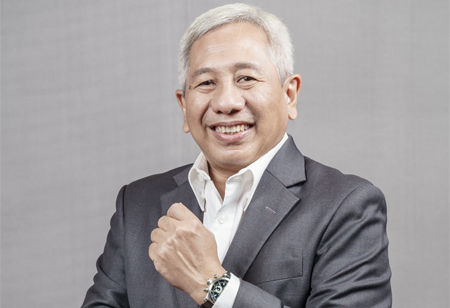
M. Danny Buldansyah, Director & Chief Business Officer, Indosat Ooredoo Hutchison, in interaction with Asia Business Outlook, shares his views on digitalization, changing customer trends and potential security risks faced by the telecom industry.
How are telecom companies in Asia embracing digitalization in terms of their operations and services?
Particularly in Indonesia, the digital economy is vibrant, dynamic and evolving. The internet economy is slated to become USD 146 billion by 2025 and is expected to grow 5X by 2030 in alignment with the government’s ambition to be the 4th largest GDP country by 2050. The digital economy will be the main contributor to the country’s GDP by contributing approximately 14% by 2027 as 21 million new internet users growing demand for data connectivity by then.
At Indosat, we are modernizing our infrastructure and applications on Google Cloud. With this modernization, we are updating work processes within the company using advanced data analysis processes and adopting AI and ML to streamline and maximize future opportunities for new business models. Internally, we have implemented digital working principles using various digital solutions to help us make good data-driven decisions. We also provide a digital way of working through the iWork program that allows employees to work mobile from home or other locations outside the office.
How are telecom companies responding to the rise of e-commerce and digital payment channels?
By 2027, there will be IDR 429 trillion in e-commerce transactions through e-wallets in Indonesia. Digitalization is happening across all industries with notable impact, particularly in e-commerce and digital payments. Telco companies have a vital role in providing connectivity in response to this digital transformation. Mobile penetration has also expanded to accelerate financial inclusion by facilitating access to digital payments and e-commerce. With 99% of enterprises in Indonesia being MSMEs and only 30% of them are equipped with the technology, we put our focus on empowering these MSMEs to go digital and compete as e-commerce by providing training to increase digital literacy.
How are telecom companies addressing the challenges of ensuring privacy, security, and trustworthiness in the digital age?
Digital advancements move rapidly, and data privacy, security, and trustworthiness pose several challenges due to the increasing sophistication of cyber threats. There have been several cyberattacks on individuals, businesses as well as government institutions across the country. Primarily at Indosat, we ensure that our customers’ data are protected. To address these challenges, we also collaborate with regulators and other telcos to raise awareness and educate Indonesians regarding online security risks.
How are telecom companies responding to changing customer needs and preferences in the digital age?
The telco industry moves at the speed of light. And telco companies must adjust appropriately to the constant shifts in customer needs and preferences. At Indosat, customers are at the core of everything we do to achieve our vision to become the most preferred digital telco in Indonesia. We believe that we should always go where our customers are and draw closer to them.
How are regulatory frameworks and policy changes affecting the growth and development of the telecom industry in Asia?
We believe that consistent and active collaboration between telco companies with regulators and other telco players serves as the key driver in the development and growth of the telco industry. We are continuously collaborating with regulators and like-minded strategic partners to pursue our larger purpose of connecting and empowering the people of Indonesia, accelerating the nation’s digital transformation.
How are telecom companies tackling the issue of the digital divide and ensuring that all segments of society have access to digital services?
38% of adult Indonesians still don’t have internet access, which serves as an opportunity for telco companies to bridge the digital divide and accelerate the nation’s digital transformation. First and foremost, we need to provide better and more accessible connectivity. Just recently, we just completed the integration of our network, all customers can enjoy enhanced network coverage that extends to over 700 districts, improved indoor service quality reaching an additional 32% of the population, and an internet speed that is twice as fast as before the integration. Furthermore, the integration improved throughput and latency by 20%, elevating user experiences, particularly in video streaming and gaming. On top of that, we have an essential role in raising awareness and educating our customers and the general public on digital literacy.
We use cookies to ensure you get the best experience on our website. Read more...